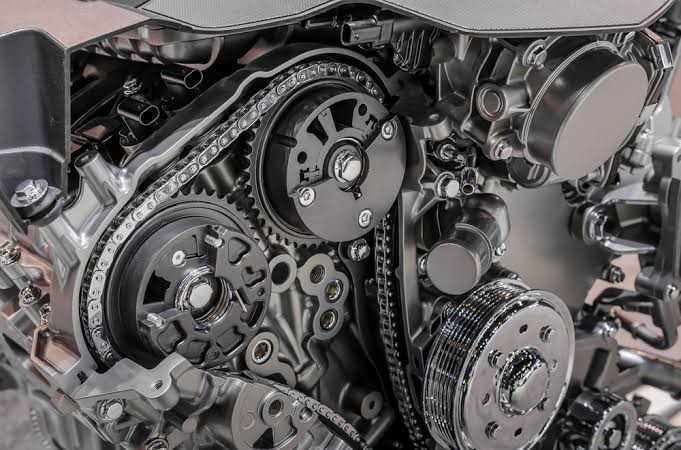The Heart of Engine Synchronization. Discover the crucial role timing chains play in engine performance. Learn why regular maintenance is vital to avoid damage and ensure optimal function.
A timing chain is a critical engine component that plays a crucial role in keeping the engine running smoothly. In most internal combustion engines, the timing chain is located at the front, either under the timing cover or in front of the camshaft. This vital mechanism comprises a series of gears, sprockets, and chains that work harmoniously to maintain synchronization between the engine's pistons and valves.
How Timing Chains Work
Timing chains are mechanical devices responsible for synchronizing the camshaft and crankshaft in the engine. They are composed of interlinked metal links that determine the time it takes for the crankshaft to complete one revolution. By regulating the movement of the pistons and valves, the timing chain ensures the engine functions accurately and efficiently. Any breakage in the timing chain could lead to severe engine malfunction and potential damage.
The Purpose of Timing Chains
The primary purpose of timing chains is to connect the camshaft and crankshaft in the engine. This connection ensures the pistons and valves move in perfect harmony, allowing the engine to perform optimally. Positioned at the front of the engine, the timing chain consists of two sprockets—one for the camshaft and another for the crankshaft—and a metal chain that links them together. Regular replacement of the timing chain is essential to prevent engine issues and potential damage in the long run.
Maintaining Your Timing Chain
To keep your engine running smoothly, maintaining the timing chain is of utmost importance. Over time, timing chains can stretch, leading to rough engine performance or stalling. Regular inspections of the timing chain's condition are necessary, and timely replacements can prevent major problems down the road.
Conclusion
Timing chains are integral components in internal combustion engines, ensuring accurate timing between the camshaft and crankshaft. With proper maintenance, timing chains provide reliable and efficient engine performance. Regular inspections and timely replacements are essential to avoid potential engine damage and maintain a well-functioning vehicle.

Comments (0)
Please login to join the discussion
Be the first to comment on this article!
Share your thoughts and start the discussion